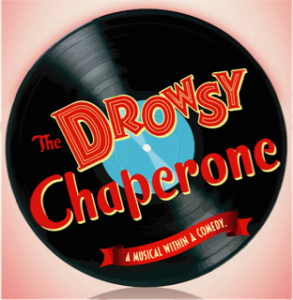 Can it be: 1920s themed musicals a “go-to” for teaching high school students about discrimination, bias, and social justice? That’s definitely not what P.K. Yonge School Performing Arts faculty thought upon first read through the script of The Drowsy Chaperone.
Can it be: 1920s themed musicals a “go-to” for teaching high school students about discrimination, bias, and social justice? That’s definitely not what P.K. Yonge School Performing Arts faculty thought upon first read through the script of The Drowsy Chaperone.
In the search for a musical theater production with multiple leading roles for her cast of talented high school students, P.K. Yonge secondary performing arts instructor Melanie Harris initially discounted The Drowsy Chaperone based on elements of bias present in musicals of the 1920s like Thoroughly Modern Millie or operettas like The Mikado.
While The Drowsy Chaperone certainly fit the bill with numerous leading roles, humor, and acting and dancing challenges, certain themes and terms in the Tony Award-winning musical left play director Melanie Harris questioning the appropriateness for today’s students and audience, and for P.K. Yonge – a school defined by it’s diversity and commitment to equality.
Upon second and third read-through, Harris, a 2015 doctoral graduate of the UF College of Education in curriculum, teaching and teacher education, began to see the musical as an avenue through which students could be educated about social bias while rehearsing and performing a play with a 1920s theme. After thinking more carefully about the production, “It became clear that as servants of public education, it’s our job to examine social themes embedded in musical theater,” she said.
Throughout preparation for this production, P.K. Yonge faculty have walked their students through issues of racial discrimination, LGBTQ bias, gender discrimination, and even age discrimination as those themes appear in the script. Preliminary read-throughs required students to identify and discuss elements of bias, discrimination and social injustice, and compare bias in the 1920s with bias as it appears in today’s society. Many of the discriminatory themes raised by the musical were clear to students – those of race, gender, or sexual orientation. Interestingly, students were not quick to identify themes pertaining to age bias.
Perhaps one of the most powerful experiences, according to Harris, occurred during an intensive rehearsal “lock in” over a chilly January weekend. During the weekend the cast and crew participated in a ‘privilege walk’ as part of their preparation. A privilege walk is an exercise designed to expose the impact of privileges and ‘normality’ that we were either born into, born with or without. Through participating in a privilege walk, students are helped to understand bias and privilege in their own lives and communities.
“It was exciting to see that through the medium of theatre we can support the development of active, involved citizens who ask hard questions, and are willing to work to find important answers,” Harris said.
Preparation for Students is Not Enough
The P.K. Yonge Performing Arts faculty felt strongly that this preparation and work in identifying and understanding social injustice through theatre was not just for students. “There is a great opportunity to share that learning and awareness with audiences at every show,” Harris said.
Harris and a student performer will introduce each performance by sharing their experiences and growth as a result of this experience.
This focus on learning and growth for the student performers and production crew culminates in a musical that comes to life in the living room of a musical theatre addict. The Drowsy Chaperon, an entertaining, funny, slapstick musical opens at the P.K. Yonge Performing Arts Center on Friday, Feb. 17 at 7 pm.
The show’s run continues on Saturday the 18th, then picks up the following week from Thursday, Feb. 23 through Saturday the 25th.
For show times and to purchase tickets, visit the PKY box office or go online at:(http://pkyonge.ufl.edu/extracurricular/spring-musical/).




